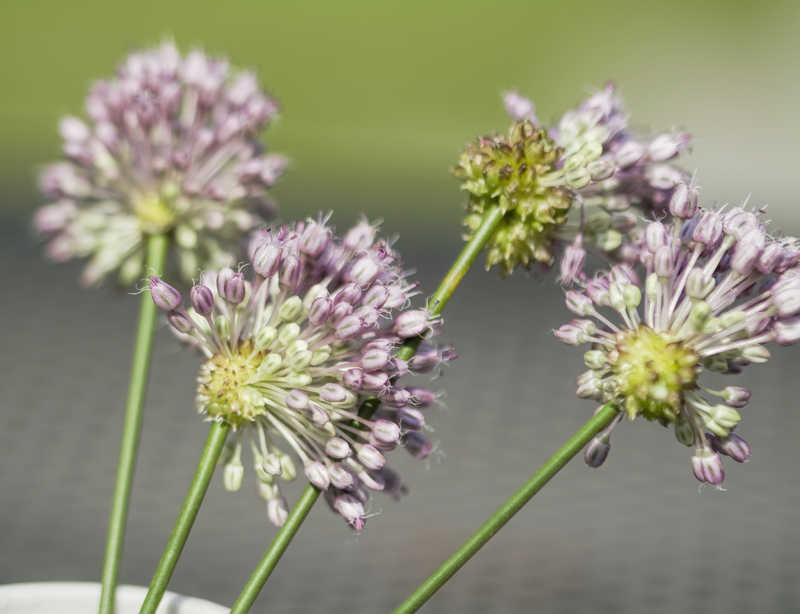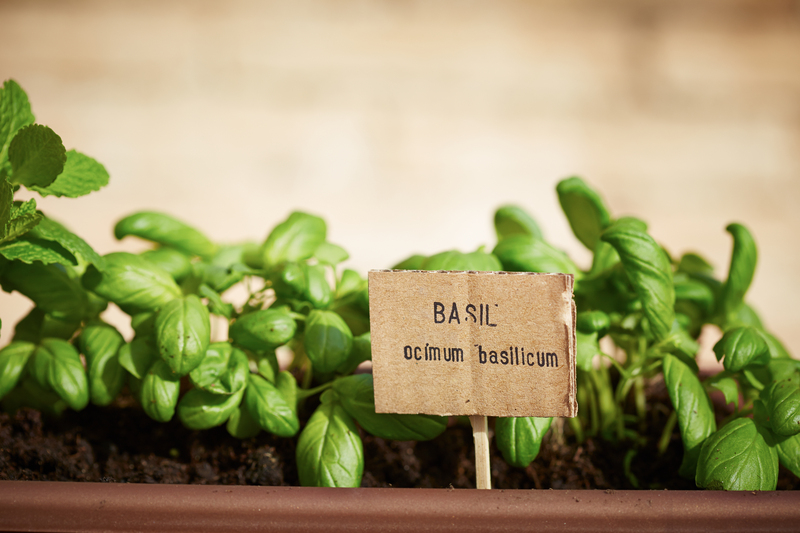Transform Your Space with a Herb Garden
Posted on 23/06/2025
Transform Your Space with a Herb Garden: The Ultimate Guide
Are you looking for a way to refresh your living space, add a touch of green, and enjoy the benefits of homegrown flavors? Transforming your space with a herb garden not only enhances your home's aesthetic appeal but also provides a multitude of practical, health, and culinary advantages. This detailed guide shares everything you need to know about creating, maintaining, and enjoying your very own herb oasis--whether you have a sprawling backyard or a compact apartment balcony.

Why You Should Create a Herb Garden in Your Home
There are endless reasons to cultivate a herb garden at home. Here's why this simple act can completely transform your indoor or outdoor space:
- Enhances Aesthetics: Fresh green herbs add vibrancy and life to kitchens, windowsills, and patios.
- Improves Air Quality: Many herbs naturally purify the air, making your environment healthier.
- Boosts Well-being: Gardening has been shown to reduce stress and foster mindfulness.
- Saves Money: Growing your own herbs eliminates frequent supermarket runs and reduces grocery costs.
- Adds Flavor: Homegrown herbs are fresher, more aromatic, and flavorful than store-bought options.
- Educational: An herb garden is a fun and interactive way to involve kids and learn about plants and nutrition.
Choosing the Right Space for Your Home Herb Garden
One of the first steps in transforming your familiar space with a herb garden is selecting the perfect spot. Consider the following tips for optimal herb growth and accessibility:
- Sunlight: Most herbs love bright, indirect sunlight. Six to eight hours of sun exposure daily is ideal. South- or west-facing windows work best for indoor gardens.
- Accessibility: Place your garden within arm's reach of your kitchen. This makes it easy to harvest fresh herbs while cooking.
- Ventilation: Ensure good air circulation to reduce mold and mildew risks, especially indoors.
- Space: Even the smallest spaces--a narrow windowsill, balcony railing, or vertical wall--can be transformed with creative solutions like hanging pots or tiered planters.
Outdoor vs Indoor Herb Gardens
Outdoor gardens usually yield larger, more bountiful herbs but require garden beds or outdoor pots. Indoor herb gardens are perfect for apartments and allow year-round gardening. Both can dramatically transform your home's atmosphere and culinary routine.
Selecting the Best Herbs for Your Garden
Choosing the right herbs for your space depends on your climate, taste preferences, and available sunlight. Here are popular options for beginners and seasoned gardeners alike:
- Basil: The king of summer herbs, perfect for Italian and Asian dishes.
- Mint: Refreshing in drinks, desserts, and savory recipes--thrives in partial shade.
- Parsley: Versatile, easy to grow, and a staple garnish.
- Rosemary: Woody, aromatic, and drought-resistant--great for Mediterranean cooking.
- Thyme: A compact perennial ideal for small containers and roast dishes.
- Cilantro/Coriander: Zesty and essential for salsas, curries, and salads.
- Chives: Mild onion flavor, perfect for salads, potatoes, and egg dishes.
- Oregano: A must for pizza and tomato-based recipes.
For visual appeal and greater culinary options, try mixing different herbs together. Not only does this enhance the beauty of your herb garden, but it also supplies a varied supply of flavors and medicinal benefits.
Getting Started: Herb Gardening Methods
There are several innovative ways to set up your herb garden and completely transform your living space:
1. Container Herb Gardens
- Use separate pots or combine herbs with similar care needs in one large planter.
- Ensure containers have good drainage and avoid waterlogging.
- Great for balconies, patios, rooftops, or sunny rooms.
2. Vertical Herb Gardens
- Make use of walls or fences with hanging planters, vertical pallets, or pocket planters.
- Ideal for tight spaces; can create an attractive green wall.
3. Windowsill Herb Gardens
- Perfect for city dwellers and small apartments.
- Use window boxes or a row of pots--just ensure at least 6 hours of sunlight.
4. Hydroponic / Indoor Smart Gardens
- Use soil-free growing systems--perfect for tech-savvy gardeners or those with limited light.
- Low maintenance and offer year-round growth.
Step-by-Step: How to Plant Your Herb Garden
- Choose Your Location: Refer to sunlight and accessibility tips above. Mark out your space or arrange your pots/planters.
- Select Quality Soil: Use a well-draining potting mix enriched with organic compost.
- Pick Healthy Plants or Seeds: Purchase starter plants from a nursery or sow seeds directly according to package instructions.
- Potting and Planting: If growing in containers, make sure there are drainage holes. Gently remove plants from their containers, loosen roots, and plant at the same depth as in the nursery pot.
- Watering: Keep soil consistently moist but not soggy. Most herbs prefer slightly dry roots over too-wet conditions.
- Feeding: Fertilize lightly every few weeks during the active growing season with an organic or balanced fertilizer.
- Pruning and Harvesting: Regularly snip growing tips--this encourages bushier plants and prevents flowering, which can reduce flavor.
Caring for and Maintaining Your Herb Garden
To keep your herb garden thriving and maximize your harvest, follow these simple care tips:
- Rotate your pots (for indoor gardens) every few days so each side receives even sunlight.
- Water in the morning to minimize fungal diseases and maximize absorption.
- Pinch off flowers on herbs like basil and mint to prolong the harvest period and preserve flavor.
- Provide support for tall or sprawling herbs with stakes or trellises.
- Watch for pests like aphids, whiteflies, and spider mites. Treat early with insecticidal soap or neem oil.
- Periodically re-pot or prune roots if herbs outgrow their containers.
Creative Ways to Display Your Herb Garden
A herb garden can be more than just functional--it can become a distinctive design feature that makes your home stand out. Try these inspiring ideas:
- Mason Jar Mini Gardens: Line windowsills or shelves with mason jars filled with fresh herbs.
- Ladder Plant Stands: Use a reclaimed ladder for a tiered display of potted herbs.
- Hanging Macrame Planters: Suspend pots from the ceiling or under cabinets for a boho-chic look.
- Repurposed Tea Tins: Use vintage tea or coffee tins as quirky herb pots for kitchen counters.
- Wall-Mounted Garden Kits: Install modular wall planters for a living, green backsplash in your cooking area.
Harvesting and Using Your Homegrown Herbs
Harvesting Tips
- Harvest herbs in the morning, after dew has dried but before the sun is too intense.
- Use sharp scissors or pruning shears to cut just above a pair of leaves--this promotes bushier growth.
- Never remove more than one-third of the plant at once to avoid stressing it.
Ways to Use Fresh Herbs
Transform your meals with homegrown flavor! Fresh herbs elevate every dish. Here are creative uses:
- Add to salads, soups, and sauces for a burst of freshness.
- Infuse oils and vinegars with rosemary, thyme, basil, or oregano.
- Blend into pesto, chimichurri, or herbed butter.
- Create herbal teas using mint, chamomile, or lemon balm.
- Dry or freeze extra herbs for year-round use.
- Make natural cleaners or DIY bath products with aromatic varieties like lavender or sage.
Benefits Beyond the Kitchen
Herb gardens don't just transform cooking--they also support holistic well-being and a sustainable lifestyle:
- Natural Remedies: Many herbs have medicinal properties for teas, home remedies, or aromatherapy.
- Eco-Friendly: Growing herbs helps reduce carbon footprint and encourages pollinators like bees and butterflies.
- Personal Fulfillment: Tending to a garden fosters a sense of accomplishment and connection to nature.

Frequently Asked Questions
- Can I grow herbs year-round? - Yes! Most culinary herbs thrive indoors with proper light, even in winter.
- Which herbs grow best together? - Group herbs with similar water and light needs (e.g., rosemary, sage, and thyme).
- How do I prevent my herbs from dying? - Avoid overwatering, provide good sunlight, and prune regularly.
- What if I don't have outdoor space? - Transform any sunny spot indoors--kitchen windows, countertops, or living room shelves can accommodate a lovely potted herb garden.
Conclusion: Start Transforming Your Space with a Herb Garden Today
Creating a herb garden is a simple, rewarding way to transform your space, improve your well-being, and enjoy the freshest flavors right at home. With a little planning, creativity, and care, you can bring beauty, aroma, and vitality to any environment. Start small, experiment with different herb varieties, and enjoy the journey of cultivating your own thriving green sanctuary. Whether you're sipping mint tea harvested from your windowsill or seasoning dinner with basil plucked moments before, a home herb garden turns any space into a vibrant, living retreat.
Begin your transformation today--dig in, plant your herbs, and watch your space (and your recipes) flourish!
Latest Posts
Crafting a Pet-Safe Garden Oasis with Floral Flair
Children's Adventure Gardens: Design Tips
From Neglect to Nurture: Garden Revival Tips

